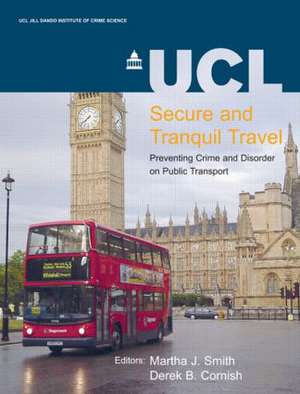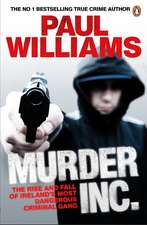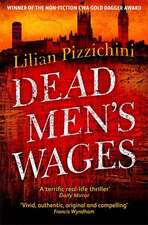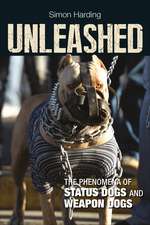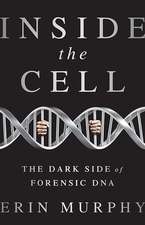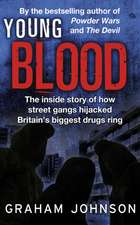Secure and Tranquil Travel
Editat de Martha J. Smith, Derek B. Cornishen Limba Engleză Paperback – mai 2006
| Toate formatele și edițiile | Preț | Express |
|---|---|---|
| Paperback (1) | 456.39 lei 6-8 săpt. | |
| Jill Dando Inst, UCL – mai 2006 | 456.39 lei 6-8 săpt. | |
| Hardback (1) | 931.20 lei 6-8 săpt. | |
| Jill Dando Inst, UCL – 2 feb 2017 | 931.20 lei 6-8 săpt. |
Preț: 456.39 lei
Preț vechi: 590.13 lei
-23% Nou
Puncte Express: 685
Preț estimativ în valută:
87.34€ • 90.85$ • 72.11£
87.34€ • 90.85$ • 72.11£
Carte tipărită la comandă
Livrare economică 14-28 aprilie
Preluare comenzi: 021 569.72.76
Specificații
ISBN-13: 9780954560744
ISBN-10: 0954560744
Pagini: 238
Dimensiuni: 210 x 276 x 13 mm
Greutate: 0.44 kg
Ediția:1
Editura: Jill Dando Inst, UCL
Colecția Routledge
ISBN-10: 0954560744
Pagini: 238
Dimensiuni: 210 x 276 x 13 mm
Greutate: 0.44 kg
Ediția:1
Editura: Jill Dando Inst, UCL
Colecția Routledge
Cuprins
Contents Acknowledgements Contributors ForewordRonald V. Clarke (Rutgers University, New Jersey) 1 Introduction - crime and disorder on publictransportRussell Morgan andDerek Cornish 2 Understanding local transport crime problemsRussell Morgan andDerek Cornish 3 Anti-social behaviourDerek Cornish andMartha J. Smith 4 Crimes against passengers - theft, robbery, assault and indecent assaultRussell Morgan andMartha J. Smith 5 Crimes against employees - assault and robberyRussell Morgan andMartha J. Smith 6 Vandalism and graffitiRussell Morgan andMartha J. Smith 7 Line-of-route crimesDerek Cornish andMartha J. Smith 8 Concluding remarksDerek Cornish andMartha J. Smith Appendix 1 : Acronyms and abbreviations used in this manual Appendix 2 : Local data sources for crime, disorder and fear on public transport Appendix 3 : Funding sources and award schemes References Index
Recenzii
Secure and Tranquil Travel is applied criminology at its best. Written for those with an interest in managing rail, bus, and underground transport services, the book offers what is essentially a step-by-step guide on how to identify and mitigate various kind of crime and disorder on public transit facilities. Using the SARA model (Scanning, Analysis, Response, and Assessment), the contributors examine anti-social behaviour, crimes against passengers, crimes against employees, vandalism and graffiti, and line-of-route crimes. In its entirety, the book is a wonderful resource in the most applied sense. While its pragmatism might be disconcerting for those with an appreciation for critical criminology, the way in which the contributors bring criminological theory, methodological insight, and empirical evidence to bear on real-world problems is intellectually refreshing. Holding the book together is a whole-hearted embrace of opportunity-based theories of crime. With each chapter drawing heavily from advances in rational choice and routine activity theory, situational crime prevention, and Crime Prevention Through Environmental Design, one is treated to a detailed analysis of how the spatial and temporal flow of passengers, staff, and would-be offenders, when combined with an amenable physical environment, can set the stage for crime and disorder. What makes the book particularly interesting is the way it makes criminological theory and research speak to the organizational demands and concerns of the public transportation industry,including issues and/or concerns about staffing, efficiency, ridership, public relations, and revenue generation. Thus, the book will likely catch the interest of those working in the industry. The methodological rigor of Secure and Tranquil Travel is worth noting. Using the SARA model, the authors bring to light just how critically important it is that preliminary research flesh out crime and disorder’s situationally specific characteristics. While acknowledging the problems that inevitably follow from “cookie-cutter†solutions to crime and disorder, the contributors manage to walk that fine line between applying tried-and-true solutions on one hand, and focussing on situational variation on the other. It is this balance that gives the book its sense of cautious, scientific optimism. Although academic reviews rarely comment on a book’s design or layout, I believe it is necessary here. Secure and Tranquil Travel makes extensive and effective use of photography. As a result, problems of crime and disorder are brought to life in their natural settings, offering the reader a unique opportunity to evaluate criminogenic environments in a way that is as close as it gets to an actual site visit. However, the book’s pragmatism is slightly disconcerting in so far as its emphasis on “what might work†leaves little room for more difficult discussions about the cultural politics surrounding crime, disorder, and especially fear. Of course, proponents of situational crime prevention are rarely forthright about such matters, choosing instead to focus exclusively on the criminal event as an a-political phenomenon as opposed to the biographical origins of the offender or the structural causes of criminality. While it might have been difficult to acknowledge the relevance of race, gender, or socio-economic status as critical factors in the aetiology of fear (for example) given the book’s target audience, these issues should have been raised nonetheless. The importance of racism, gender discrimination, and inequality must remain part of the broader discussion when it comes to explaining and perhaps solving issues of crime and disorder. Unfortunately, Secure and Tranquil Travel offers a mere nod in that direction. Finally, a pedagogical note: adopting the book as a required reading in a university setting would be a challenge given its exclusive focus on public transit. That being said, however, the book would make a phenomenal resource for instructors looking to introduce case study material into their lectures and/or seminars and would thereby provide that sense of “hands on†training which so many undergraduate criminology and sociology students seem to appreciate. PATRICK F. PARNABY University of Guelph
Notă biografică
Smith, Martha J.; Cornish, Derek B.
Descriere
Herein lie the answers to crime and disorder.
